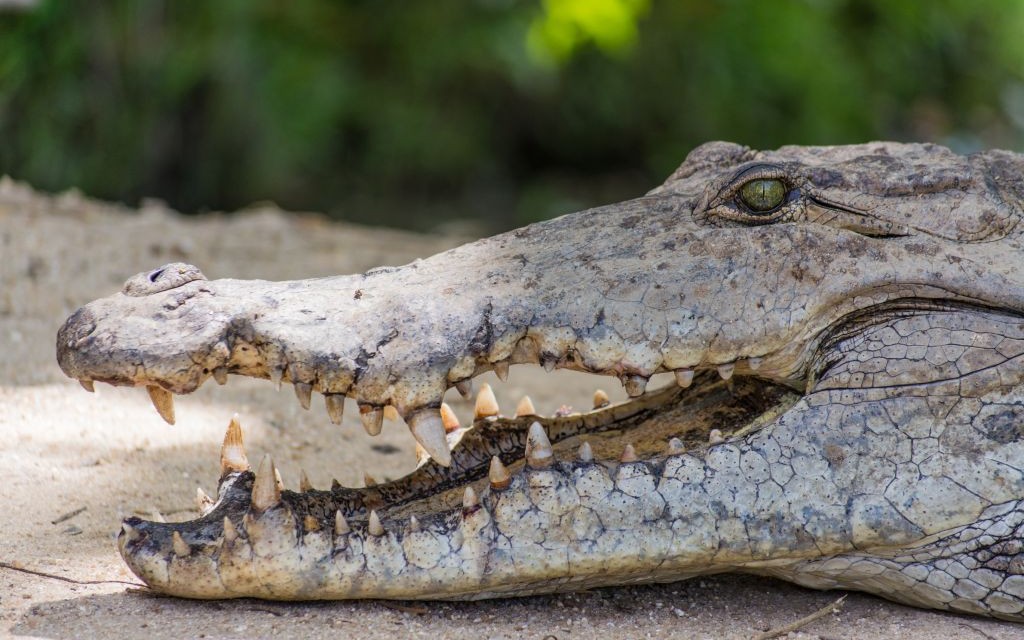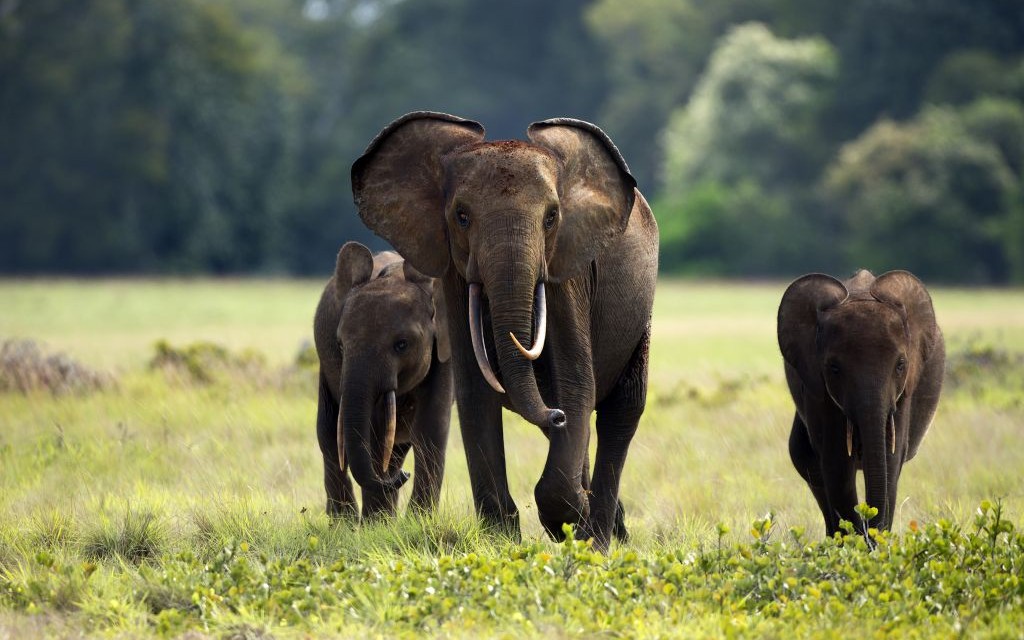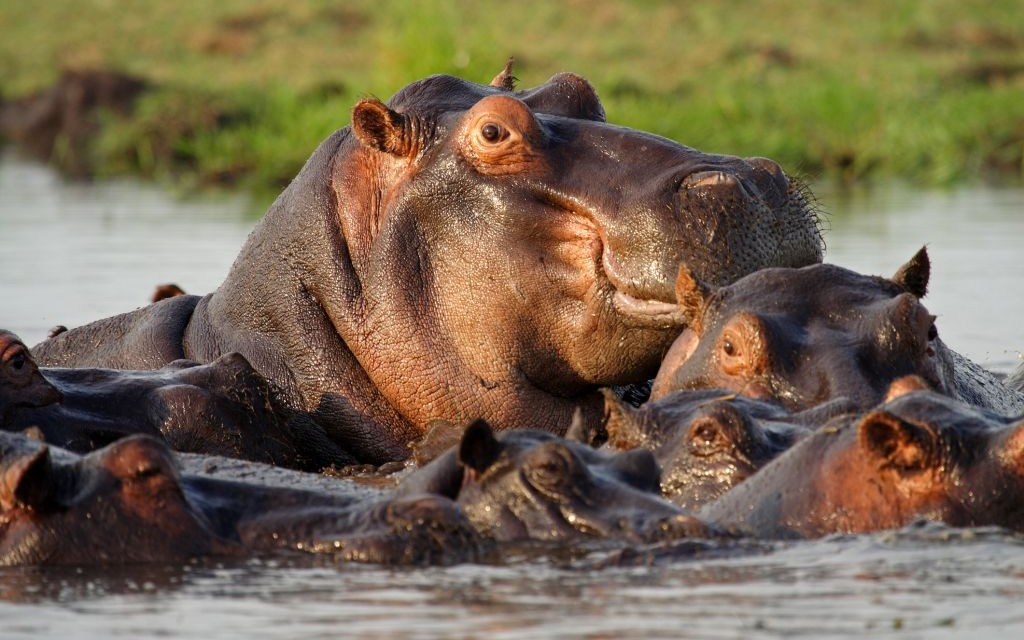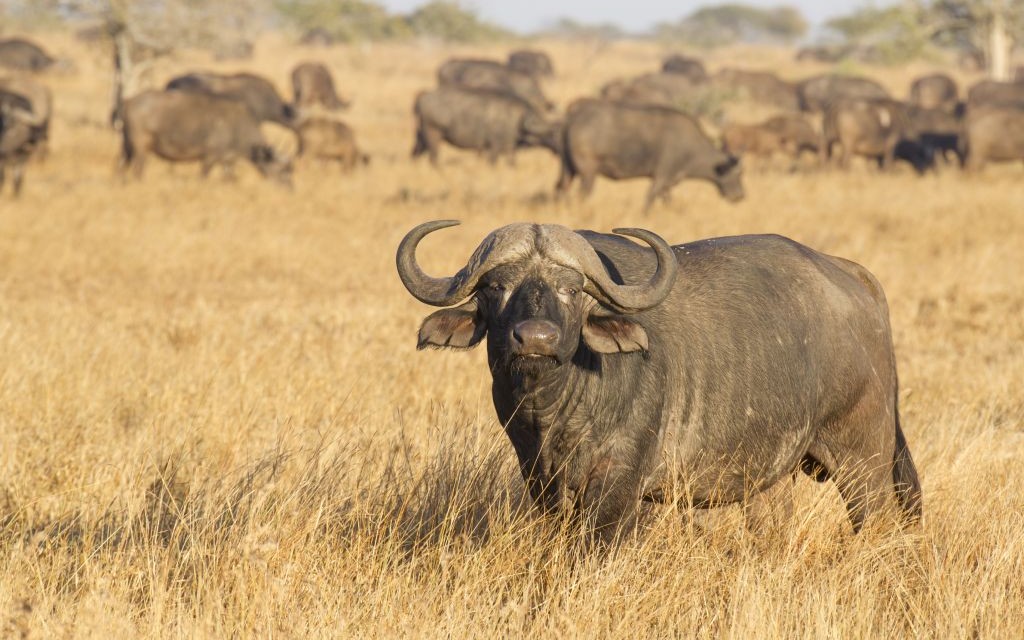Whether you’re traveling solo or on a group nature tour, animal attacks can be a serious threat while traveling abroad. Knowing what to do and, sometimes more importantly, what not to do during an animal attack can mean the difference between life and death.

Paga Crocodile Pond, Ghana © Pinagome | Dreamstime 46029823
Crocodiles kill up to 2,500 people worldwide annually and if you don’t have time to run from them — they can only run 10 mph — you’ll find yourself facing a mouthful of razor sharp teeth. Crocodiles attack for two reasons — they either want to defend themselves or they think you’d make a good dinner. If the attack is in defense, the crocodile will most likely let you go after a few chomps, but if the animal has other intentions, it will try to drag you into the water. In this case, attack the head, eyes, snout and mouth as much as possible using your fists, legs or anything else. Crocodiles have a flap in the back of their mouth covering the opening to their lungs, which if you hit or grab hold of it, will force them to release you or drown. If the animal begins to roll you, roll with it. The extended energy will cause the animal to release you.

Forest Elephants of Loango National Park, Gabon © Zahorec | Dreamstime
Elephants kill about as many people per year as crocodiles, but at least you don’t have to worry about them eating you. Elephants charge when they feel you are a threat to them or their young. At first, they may exhibit a mock charge, in order to see if you are a threat. If their ears are relaxed and their trunk is twitching or swinging, it’s most likely a mock charge, and they mean no real harm. If an elephant does attack, however, use loud noises or throw decoys, such as bags or clothing items to confuse it. If there’s anything around you, attempt to climb above the elephant’s reach. Do not trap yourself in a car unless you’re capable of driving away — otherwise, the elephant is likely to trample or flip the automobile.

Hippos on the Chobe River, Caprivi Strip, Namibia © Mogens Trolle | Dreamstime
Hippos are also a dangerous threat, killing more than 300 people a year. While you may think hippos are only a danger in the water, think again. Dry season can force hippos out onto land, where they’re easily provoked. If you’re quick, you may be able to outrun the animal, as hippos can be fast, but never for long distances. You can confuse it by hiding behind trees or termite mounds. Do not block the animal from reaching the water, as they are usually most docile when near or in deep water. If you encounter a hippo while boating, do not touch, tap or get near it.

Cape Buffalo, Kruger Park, South Africa © Stu Porter | Dreamstime
Cape buffalo may not be the first thought when you consider deadly animals in Africa, but they still take out several hundred people a year. Cape buffalo weigh close to 2 tons and are notoriously smart killers. They’re known to seek out and kill both hunters and lion cubs — you might call it taking preventative measures. Whatever you do, don’t try to fight an angry or wounded buffalo. They’ll stalk a victim as long as it takes and even bring along their friends to help. Your best bet is to run or, better yet, drive away from the situation as quickly as possible.
Read This Next
Top 5: Herbivores of Kenya
Africa
Aug 26, 2015#TrazeeTravel
Insta FeedHotel
May 29, 2025Hotel Burg in Leesburg, Virginia, Now Accepting Reservations for August 2025
Hotel Burg, the highly anticipated boutique hotel opening in Leesburg, Virginia, is now accepting reservations for stays beginning Aug. 1.
Sponsored Content
AmaWaterways’ Specialty River Cruises
When you embark on a river cruise with award-winning AmaWaterways, unpack once and step aboard a world of unparalleled experiences. With enriching excursions, exquisite locally sourced food and wine, nightly entertainment and more included in the fare, you will learn why AmaWaterways has the most returning guests out of any river cruise line.
Dining/Entertainment
May 29, 2025Highest Rooftop Bar in Indianapolis Opens
This summer, the highest full-service rooftop bar in Indianapolis opens atop InterContinental Indianapolis. Perfect for both a sunset social hour or swanky night out, Astrea not only promises tasty seasonal dishes and creative cocktails, but also spoils with unobstructed views of Monument Circle and downtown Indianapolis with indoor and outdoor seating.
Cruises
May 28, 2025Carnival Plans Big Expansions for Years Ahead
Carnival Cruise Line expects big enhancements over the next five years through a new initiative dubbed the “Innovation Itinerary” that will focus on new ships, experiences and destinations, as well as cruise line loyalty. Highlights will include opening Celebration Key in July, and taking delivery of new ships in 2027, 2028 and 2029.
Hotel
May 28, 2025Reservations Now Open for Secrets Playa Esmeralda, Dreams Playa Esmeralda
Two brand-new resorts are set to redefine the all-inclusive experience when they open. Reservations are now available for Secrets Playa Esmeralda (opens Aug. 1) and Dreams Playa Esmeralda (opens Sept. 1), along the untouched shores of Playa Esmeralda in the Dominican Republic.
Hotel
May 28, 2025Have a Romantic Summer Escape at This Yountville, California, Retreat
North Block Hotel, a boutique Yountville retreat in California, offers the perfect escape for couples looking for quiet luxury and a chance to reconnect. The hotel features just 20 rooms, as well as a vine-draped courtyard resembling a European village. Couples can expect every detail of the romantic weekend to be thoughtfully curated to help them unwind, reconnect and indulge. A weekend at North Block Hotel this summer includes:
ShareThis